Chicago is not just a city. It’s an experience.
If you're moving to Chicago, you're about to step into one of the most vibrant, diverse, and exciting cities in the U.S.
It doesn’t matter if you’re chasing a new job, a better lifestyle, or just craving deep-dish pizza on demand; this guide is your ultimate Chicago relocation guide.
Chicago isn’t just another big city; it’s a cultural powerhouse, a business hub, and a food lover’s paradise. With a population of 2.68 million, it’s the third-largest city in the U.S.
It offers world-class entertainment, a prospering job market, and surprisingly affordable housing compared to cities like NYC and San Francisco.
However, before you start packing, it's essential to understand the cost of living in Chicago in 2025, the best places to live in the city, and the pros and cons of living there.
So, let’s break down what you need to know before moving to Chicago because this city is one heck of a ride.
Chicago at a Glance
Where Is Chicago?
Chicago is in the heart of the Midwest, right on the shores of Lake Michigan. It’s the largest city in Illinois and the third-largest in the U.S., which makes it a major hub for business, culture, and entertainment.
Due to its central location, Chicago is a transportation powerhouse, with O’Hare International Airport being one of the busiest in the world.
Quick Facts
Here’s a snapshot of what makes the city tick:
- Population: 2.6 million residents, making it one of the most densely populated cities in the U.S.
- Geography: Covers 231.6 square miles, with 26 miles of open lakefront and 600 parks.
- Culture: Home to 200 theaters, 250 live music venues, and 74 music festivals annually.
- Food Scene: Over 7,300 restaurants, including 26 Michelin-starred spots.
- Sports: Chicago has 8 major league teams, including the Bears, Bulls, Cubs, and White Sox.
Pros and Cons of Living in Chicago
Chicago is an incredible city, but like any place, it has its ups and downs. Here’s a balanced look at what to expect:
| Pros | Cons |
|---|---|
| Plenty of jobs in Chicago for newcomers, especially in finance, healthcare, and tech. | Plenty of jobs in Chicago for newcomers, especially in finance, healthcare, and tech. |
| The CTA makes it easy to get around without a car. | Driving in Chicago can be frustrating, especially during rush hour. |
| From deep-dish pizza to Michelin-starred restaurants, Chicago is a foodie’s dream. | While cheaper than NYC or LA, the cost of living in Chicago is still high. |
| The Chicago neighborhoods offer everything from historic charm to modern luxury. | Chicago winters are brutal, with freezing temperatures and heavy snowfall. |
| Has legendary teams like the Bulls, Bears, Cubs, and White Sox. | Has legendary teams like the Bulls, Bears, Cubs, and White Sox. |
| Lake Michigan & Outdoor Spaces – 26 miles of lakefront, 600 parks, and endless outdoor activities. | Finding affordable housing can be tough, especially in popular neighborhoods. |
| Museums, theaters, and music festivals make Chicago a cultural hotspot. | The nickname isn’t just for show; expect strong winds year-round. |

Moving soon? Don’t wing it—plan like a pro! Check out our Week-by-Week Moving Checklist and make your move smooth as butter!
Cost of Living in Chicago
Let’s talk money because if you’re moving to Chicago, you need to know exactly what you’re signing up for.
Chicago isn’t the cheapest city in the U.S., but it’s also not as wallet-crushing as NYC or San Francisco.
Housing Costs
Chicago’s rental market is all over the place, depending on where you want to live.
If you’re eyeing downtown luxury, be ready to drop some serious cash.
But if you’re cool with a cozy neighborhood vibe, you can find affordable spots that won’t drain your bank account.
| Apartment Type | Average Monthly Rent |
|---|---|
| Studio | $1,500 – $2,200 |
| 1-Bedroom | $1,800 – $2,900 |
| 2-Bedroom | $2,400 – $4,000 |
| 3-Bedroom | $3,200 – $5,500 |
If you’re thinking about buying, the median home price in Chicago is around $335,000, but that varies wildly by neighborhood.
Utilities & Internet
Chicago’s weather is no joke, which means your utility bills will fluctuate throughout the year.
In winter, your heating bill will skyrocket. In summer, you’ll be cranking the AC.
| Utility Type | Average Monthly Cost |
|---|---|
| Electricity, Heating, Water | $150 – $250 |
| Internet (High-Speed) | $60 – $120 |
| Cell Phone Plan | $50 – $90 |
Food & Groceries
Chicago’s food scene is legendary, but eating out every day will burn a hole in your wallet.
Groceries are slightly above the national average, but you can save money by shopping at places like Aldi or Jewel-Osco instead of Whole Foods.
| Item | Average Price |
|---|---|
| Milk (1 gallon) | $4.00 |
| Eggs (dozen) | $3.50 – $5.00 |
| Bread (loaf) | $3.00 – $4.50 |
| Chicken (per pound) | $5.50 – $7.00 |
| Rice (5 lbs.) | $6.00 – $9.00 |
Dining out? Here’s what you’re looking at:
- Fast food meal: $10 – $15
- Casual dining for one: $20 – $35
- Fancy dinner for two: $120 – $250
Transportation Costs
Chicago’s public transportation is solid, so you don’t need a car unless you really want one.
The CTA (Chicago Transit Authority) runs buses and trains all over the city, and a monthly pass is way cheaper than gas, insurance, and parking fees.
| Transport Type | Average Cost |
|---|---|
| CTA One-Way Ticket | $2.50 |
| CTA Monthly Pass | $75 |
| Taxi (5 miles) | $16 |
| Gas (per gallon) | $4.06 |
Miscellaneous Costs
Chicago has plenty of hidden costs that add up fast. Gym memberships, entertainment, and even basic necessities can be pricier than expected.
| Expense | Average Cost |
|---|---|
| Gym Membership | $63/month |
| Movie Ticket | $15 |
| Haircut (Men’s) | $30 – $50 |
| Haircut (Women’s) | $50 – $100 |
Final Thoughts
So, is Chicago a good place to live? Absolutely, but you need to budget smart. If you’re strategic about where you live, how you commute, and where you shop, you can make the Chicago relocation guide work for you without feeling broke all the time.

Moving from another state? Check out the Popular Moving Routes in Illinois to find the best movers near you and make your transition smooth as butter!
Best Neighborhoods in Chicago for Families
If you are moving to Chicago with your family, it is crucial to pick the right neighborhood.
Chicago has over 200 distinct neighborhoods, each with its own charm, but not all are equally suited for families.
Let's see some of the best neighborhoods in Chicago for families.
Lincoln Park
Lincoln Park is one of Chicago's most desirable neighborhoods for families—and for a good reason.
It offers plenty of green space, playgrounds, and the famous Lincoln Park Zoo (which is free!).
The area also has excellent schools like Lincoln Park High School and St. Clement School,
The average rent for a one-bedroom apartment in Lincoln Park is around $1,800.
If you’re looking to buy a home here, it typically ranges from $485,000 to well over a million.
Lakeview
Lakeview offers a slightly more affordable option while still being close to the lake.
It is known for its lively yet family-friendly atmosphere. It has a diverse mix of restaurants, parks, and entertainment options like Wrigley Field.
Families can benefit from its top-rated schools, such as Blaine Elementary School and Hawthorne Scholastic Academy.
You’ll find a variety of housing options, with the average rent for a one-bedroom apartment around $1,695 and home prices ranging from $400,000 to $900,000.
Edison Park
Edison Park is a hidden gem for families. It is located on the far northwest side of Chicago.
Edison Park has some of the city’s safest streets and top-notch public schools, like Ebinger Elementary and Edison Park Elementary.
It's a quiet neighborhood with tree-lined streets, large single-family homes, and easy access to nearby suburbs.
One of the key advantages of Edison Park is its affordability compared to other family-friendly neighborhoods.
The average home price is around $300,000, and there are fewer rental options.
Beverly
Beverly is located on the city’s southwest side and offers a unique blend of urban and suburban living.
It is known for its spacious homes and large yards; this neighborhood has a rich history and a tight-knit community.
Beverly is particularly appealing to families because of its strong local schools, such as Sutherland Elementary School and Morgan Park Academy.
What sets Beverly apart is its affordability for families looking for larger homes.
The median home price here is around $350,000, and you’ll find beautiful historic houses with plenty of space for kids to play.
Oak Park
Oak Park isn’t technically in Chicago, but it’s close enough (about 10 miles west of downtown) and too good not to mention.
It is known for its excellent schools and a strong sense of community.
Oak Park is one of the best suburbs for families moving to the Chicago area.
The public school system, like Oak Park-River Forest High School, consistently ranks among the top in Illinois.
Housing prices in Oak Park are a bit higher than in some Chicago neighborhoods.
The average home price ranges around $400,000.

Don’t let moving day turn into a circus! Get expert tips and Find the Best Long Distance Moving Companies
Chicago Job Market
One of the most important things to consider, especially if you're a newcomer or a young professional, is the job market.
With a population of nearly 2.7 million people, Chicago is the third-largest city in the U.S.
It offers a wealth of opportunities for job seekers of all backgrounds.
Key Industries in Chicago
Chicago’s economy is built on a solid foundation of diverse industries.
Here are some major sectors:
Finance: Chicago is a major financial hub. It is home to the Chicago Stock Exchange, CME Group (Chicago Mercantile Exchange), and various multinational banks.
Healthcare: The healthcare industry is expanding rapidly here. Institutions like Northwestern Memorial Hospital and Rush University Medical Center are employing thousands.
Technology: Tech is one of the fastest-growing sectors in Chicago.
The city is often seen as a rising tech hub due to the companies like Grubhub, Groupon, and Salesforce.
Manufacturing and Logistics: Chicago’s central location is known for its logistics powerhouse.
Major companies, such as Caterpillar, Kraft Heinz, and Boeing, have a strong presence in the area.
Education: Chicago is also home to prestigious institutions like the University of Chicago and Northwestern University, which offer ample opportunities in education and research.
Employment Rate and Salary Expectations
As of the latest data, the unemployment rate in Chicago is around 3.2%, which is lower than the national average.
In terms of salaries, the median income for an individual in Chicago is about $60,000 per year.
| Industry | Average Salary |
|---|---|
| Finance | $75,000 - $120,000 |
| Healthcare | $60,000 - $85,000 |
| Technology | $80,000 - $130,000 |
| Education | $50,000 - $75,000 |
| Manufacturing | $50,000 - $70,000 |
| Logistics | $45,000 - $70,000 |
Chicago Public Transportation Guide
If you are moving to Chicago, one of the most important things to understand is how to get around.
Let’s discuss how Chicago’s public transportation works.
The CTA
The Chicago Transit Authority (CTA) runs the city's bus and train systems
It provides coverage across the city and its nearby suburbs.
The CTA serves more than 1.6 million riders daily across its various services.
Here’s a breakdown of how the CTA operates:
"L" Train: The CTA’s rail system, known as the "L" (short for "elevated"), is the most iconic part of Chicago’s transit network.
It consists of eight color-coded lines. The train lines are reliable and frequently run 24/7.
CTA Bus: The "L" trains are served by over 130 bus routes that crisscross the city. It covers corners that the trains don't.
The "L" Train System
The "L" trains are the most popular way to get around the city.
Each line is color-coded, which makes it easy to follow.
| Train Line | Key Destinations | Operating Hours |
|---|---|---|
| Red Line | Runs north-south, connecting Rogers Park to Chinatown and 95th/Dan Ryan | 24 hours |
| Blue Line | Connects O'Hare Airport to downtown and the western suburbs | 24 hours |
| Green Line | Runs from Oak Park to South Side neighborhoods like Englewood | 4:00 AM - 1:00 AM |
| Brown Line | Serves northern neighborhoods like Lincoln Park and Lakeview | 4:00 AM - 1:30 AM |
| Orange Line | Connects Midway Airport to the Loop | 4:00 AM - 1:00 AM |
| Purple Line | Primarily a commuter route between downtown and Evanston | Peak hours (weekday rush only) |
| Pink Line | Runs from the west side to downtown | 4:00 AM - 1:00 AM |
| Yellow Line | Connects suburban Skokie to the northern part of the city | Peak hours (weekday rush only) |
CTA Buses
If the train system doesn’t take you exactly where you need to go, the CTA’s bus system will.
Buses cover virtually all areas. There are over 130 bus routes, and many run parallel to the train lines.
Main Bus Routes: Major roads, such as Michigan Avenue, State Street, and Ashland Avenue, are well-served by buses, offering frequent stops and short wait times.
Express Services: Some routes also offer express services, which skip certain stops to shorten travel time during rush hours.
A bus ride costs $2.50 with a Ventra card (CTA’s payment system)
Fares and Payment Options
Chicago has simplified its fare system with Ventra cards, which can be used on both buses and trains.
| Fare Type | Cost |
|---|---|
| Single Ride | $2.50 (bus), $2.50 (train) |
| Transfer | $0.25 (within 2 hours) |
| Monthly Pass | $105 (unlimited rides) |
| 1-Day Pass | 1-Day Pass |
| 7-Day Pass | $20 |
Use the Metra for Suburban Commutes
Metra is a commuter rail system that connects Chicago to its suburbs and beyond.
It serves more than 240 stations.
It’s perfect for those who want to avoid long commutes in traffic.
| Metra Line | Key Destinations | Peak Fare |
|---|---|---|
| BNSF Railway | Runs between Aurora and Chicago’s Union Station | $5.50 - $10.00 |
| UP-North | Connects Kenosha (WI) to downtown Chicago | $5.00 - $9.50 |
| UP-West | Runs from Elburn to Chicago | $5.50 - $10.00 |
| Metra Electric | Serves Hyde Park and the South Side | $3.25 - $6.75 |
Education in Chicago
If you’re moving to Chicago, you’ll want to know what’s up with the education system. Whether you’re looking for public schools, top-rated districts, or specialized programs, Chicago has plenty of options.
Overview of the Public School System
Chicago’s public school system is run by Chicago Public Schools (CPS), which is one of the largest school districts in the U.S., serving over 321,000 students across 600+ schools.
CPS offers traditional public schools, magnet schools, charter schools, and selective enrollment schools, giving families a variety of choices based on their needs.
Here’s what you need to know:
- Free Public Education – CPS providesfree K-12 education to residents.
- Selective Enrollment Schools These schools require testing and applications for admission and are known for high academic performance.
- Magnet & Charter Schools Offer specialized programs in areas like STEM, arts, and international studies.
- Neighborhood Schools Assigned based on residential address, but transfers are possible.
Top-Rated School Districts
If you’re looking for the best school districts in the Chicago area, here are some of the highest-rated ones based on academic performance, teacher quality, and parent reviews:
| School District | Location | Why It Stands Out |
|---|---|---|
| Adlai E. Stevenson High School District 125 | Lincolnshire, IL | Known for rigorous academics and college prep programs. |
| Glenbrook High School District 225 | Glenview, IL | Offers strong athletics, arts, and leadership programs. |
| Evanston Township High School District 202 | Evanston, IL | Focuses on diversity, academic excellence, and extracurriculars. |
| Township High School District 113 | Highland Park, IL | Provides AP courses and individualized learning opportunities. |
Weather & Climate
This city doesn’t do mild; it’s hot in the summer, freezing in the winter, and unpredictable in between. So, let’s break it down.
Chicago Seasons
Chicago has four distinct seasons, each with its own personality:
- Spring (March-May): It starts off chilly, but by May, you’ll see flowers blooming and patios opening. Expect rainy days and temperature swings from 40°F to 70°F.
- Summer (June – August): Hot, humid, and lively. Temps range from 70°F to 90°F, but heat waves can push it past 95°F. This is festival season, so the city is buzzing.
- Fall (September – November): Arguably the best season—cool, crisp air, beautiful foliage, and comfortable temps between 50°F and 70°F.
- Winter (December – February): Brutal. Cold. Windy. Temps drop below freezing, and snowstorms are common. Wind chills can make it feel below zero, so bundle up.
What to Expect
Chicago’s nickname is the Windy City, and it earns that title.
- Winters Expectsnow, ice, and freezing temps. The coldest months are January and February, with lows around 22°F. Snowfall averages 38 inches per year, but blizzards happen.
- Summers Hot and humid, with occasional thunderstorms. July is the hottest month, averaging 82°F, but heat waves can push it past 90°F.
- Storms Spring and summer bring heavy rain, thunderstorms, and occasional tornado warnings. Chicago doesn’t get many tornadoes, but severe storms can roll through.
Best Time to Move
If you’re moving to Chicago, timing matters.
- Spring (April – May): Best time to move—mild weather, fewer rental price hikes, and less hassle.
-
Summer (June – August): Great for exploring, but moving in the heat is rough. Also, rent prices spike in peak season.
- Fall (September – October): Another solid choice—cool weather, lower moving costs, and beautiful scenery.
- Winter (November – February): Avoid if possible—snow, ice, and freezing temps make moving a nightmare.
Comparing Chicago to Nearby States or Cities
Chicago is a Midwestern powerhouse, but how does it stack up against nearby cities and states? Here’s a side-by-side comparison to help you decide.
| Category | Chicago, IL | Milwaukee, WI | Indianapolis, IN | Detroit, MI | St. Louis, MO |
|---|---|---|---|---|---|
| Cost of Living | Moderate to High | Lower than Chicago | Lower rent and overall cost of living. | Cheaper than Chicago | Lower cost of living |
| Weather | Harsh winters, humid summers | Cold winters, mild summers | Mild winters, warm summers | Cold winters, warm summers | Mild winters, hot summers |
| Job Market | Finance, healthcare, and tech industries thrive. | Manufacturing and brewing industries dominate. | Healthcare, sports, and logistics industries are booming. | The auto industry and startups are revitalizing the economy. | Healthcare, education, and manufacturing lead the job market. |
| Lifestyle & Attractions | World-class food, sports, and entertainment | Laid-back vibe | Family-friendly | Rich history | Historic charm |
Moving Tips for Chicago in Winters
If you’re moving to Chicago in the winter, brace yourself—this city is known for its intense cold, snow, and wind.
But with the right preparation, your move can go smoothly, and you’ll settle into your new home without too many hiccups.
Hire Movers
Moving in snowy, icy conditions isn’t something to take lightly, especially if you're not used to handling cold weather.
Hiring professional movers with experience in Chicago winters can help you in your move.
Many moving companies in Chicago offer special winter moving packages, so check in advance.
Some companies offer discounts of up to 20-30% compared to summer moves.
Keep an Eye on the Weather Forecast
One of the trickiest parts of moving to Chicago during winter is the unpredictability of the weather.
Blizzards and snowstorms can pop up out of nowhere.
About 22 snowstorms occur annually in Chicago, with severe conditions possible in January and February.
Plan to be flexible with your schedule. If a big storm is expected on your moving day, it’s best to reschedule.
Prepare Your New Home for Winter Moving
When moving during Chicago's cold season, you need to make sure your new home is ready for the weather.
Turn on the heat a few days before your move, if possible.
Lay down plastic sheets or tarps at the entrances to protect the floors from snow, ice, and salt.
Make sure the sidewalks and driveways are clear of ice and snow.
Pack Smart for the Cold
Packing in the winter isn’t the same as during warmer months.
Cold temperatures and moisture can damage your belongings if they aren’t packed properly.
Use plastic bins instead of cardboard boxes for fragile items.
Pack a winter essentials box. Moving in the cold means you'll want easy access to items like gloves, hats, scarves, and even hot drinks, such as thermoses of coffee or tea.
Don’t forget to pack winter supplies such as ice scrapers, salt, and shovels.
Watch Out for Parking Restrictions
Chicago has strict winter parking rules that can catch new residents off guard.
From December 1 to April 1, overnight parking is banned on certain streets when snow accumulates to 2 inches or more.
Make sure you know the parking restrictions in your area before you park anything on the street.
How Much Will It Cost to Move to Chicago?
Let’s discuss how much will it cost you to move to Chicago.
Moving Costs
The cost of moving to Chicago depends on where you are coming from, how much stuff you are bringing, and the type of moving services you choose.
Local Move (within 100 miles): If you are moving locally, ready to pay between $800 and $2,200.
Long-Distance Move: If you are moving from another state, the cost jumps significantly. For a 1,000-mile move, it can range from $2,000 to $5,500.
DIY Move: If you prefer to handle the move yourself, renting a moving truck will cost around $1,200 to $2,500. Don’t forget to factor in gas, which can add another $200 to $400.
Additional Costs
There are also additional costs to consider when moving to Chicago, such as:
| Item | Cost |
|---|---|
| Security Deposit | 1 month’s rent |
| Move-in Fees | $200 - $500 |
| Furniture (new home) | $3,000 - $5,000 |
| Renters/Home Insurance | $20 - $100/month |
Total Estimated Moving Costs
Moving to Chicago can range from $4,000 to $15,000 when you add it all up.
| Expense Category | Estimated Cost Range |
|---|---|
| Moving Services (long-distance) | $2,000 - $5,500 |
| Housing (first month’s rent or mortgage) | $1,500 - $5,000 |
| Furniture/Setup | $3,000 - $5,000 |
| Security Deposit/Move-in Fees | $200 - $500 |
| Total Estimated Cost | $4,000 - $15,000+ |

Want to save BIG on moving costs? We’ve got the inside scoop on how to cut moving expenses—grab your Free Moving Estimate now!



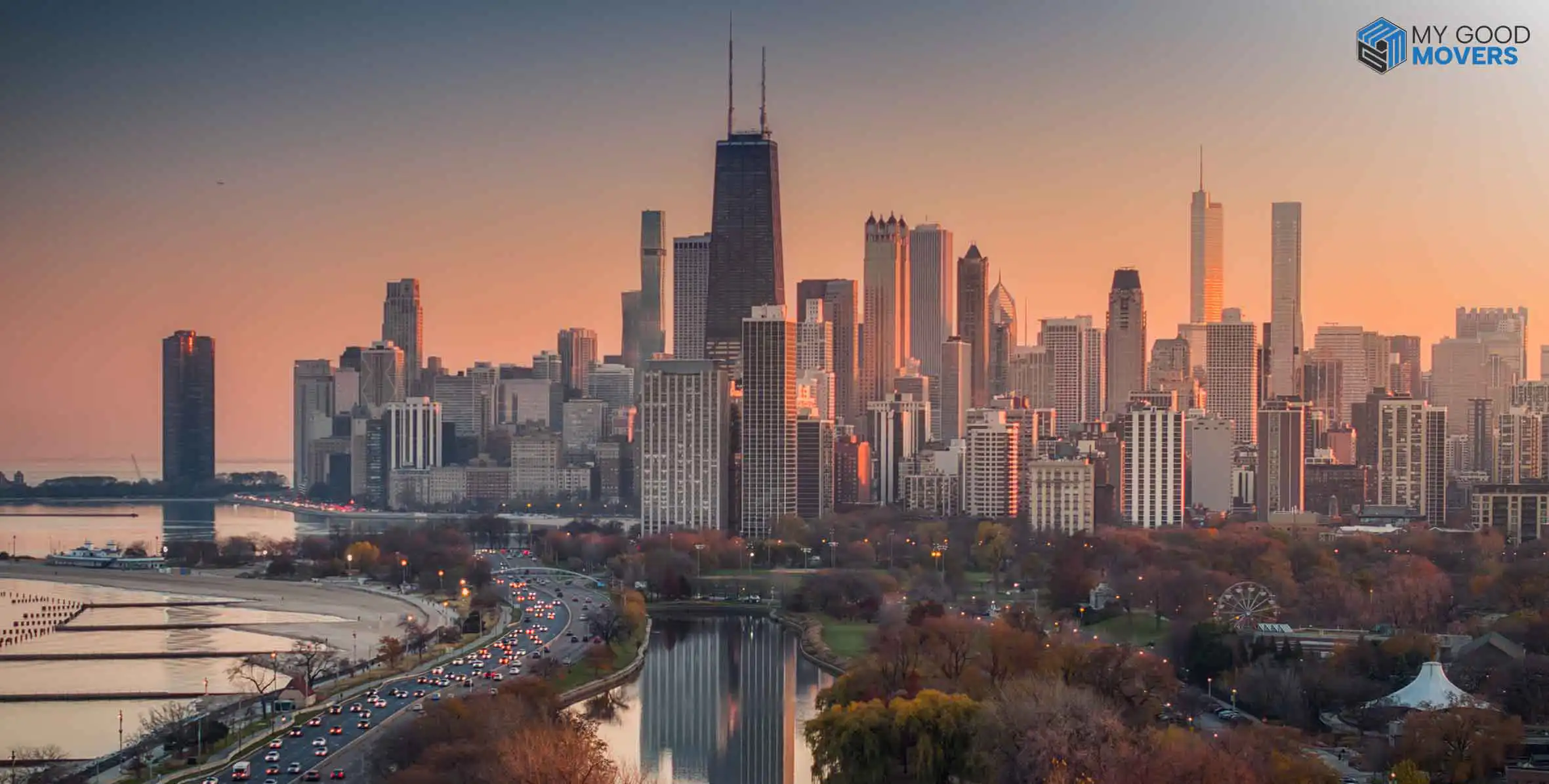

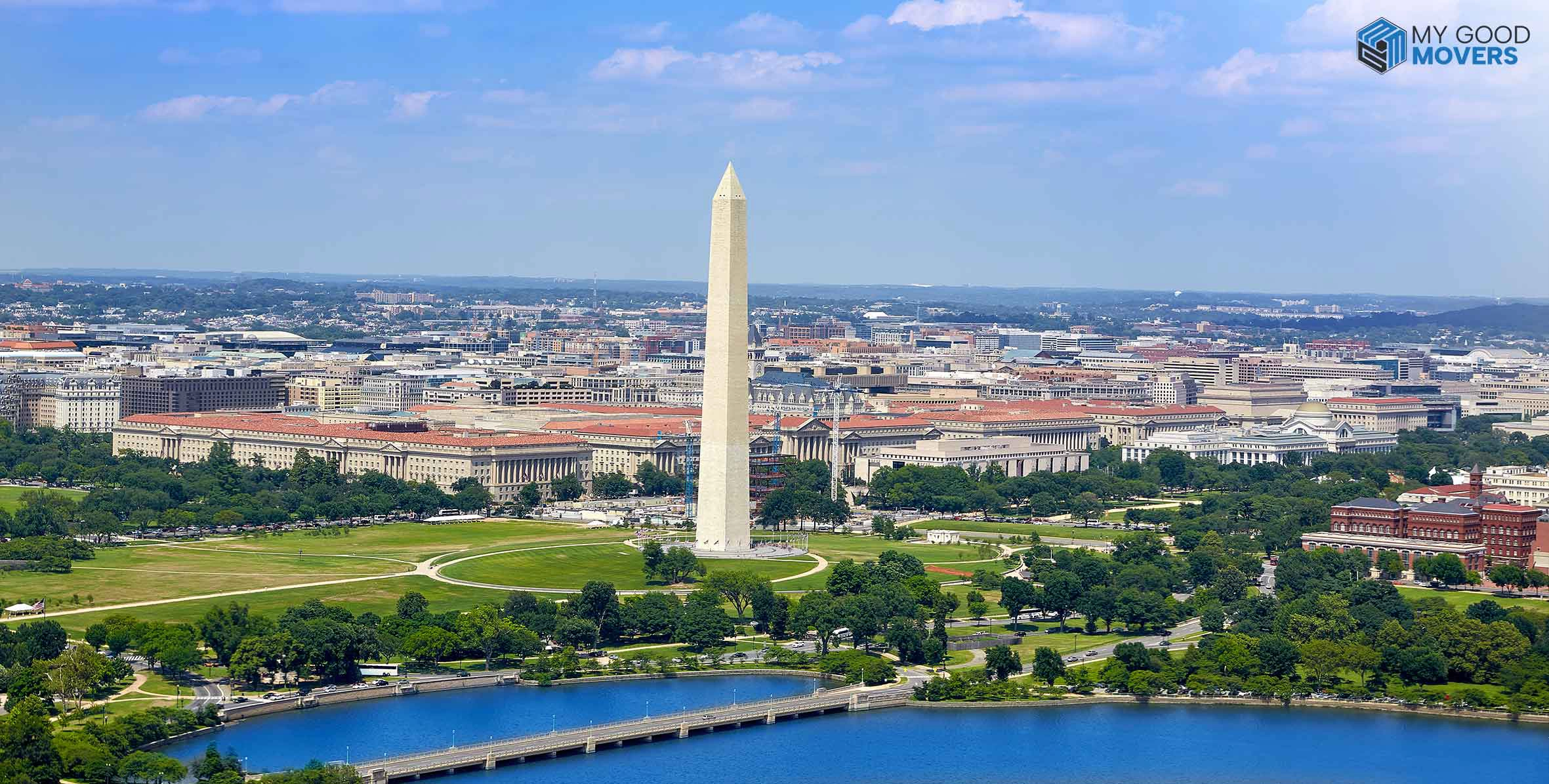
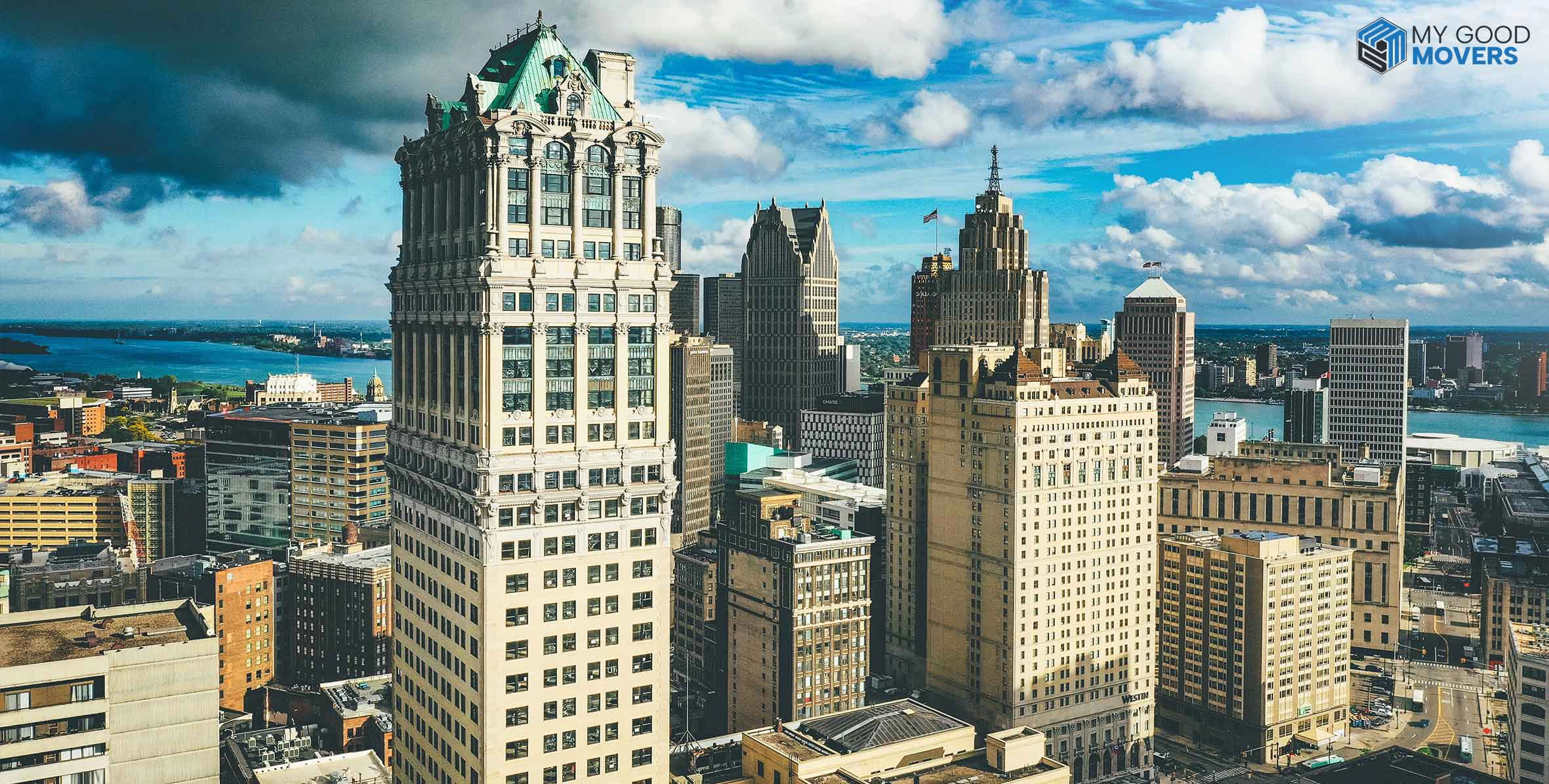

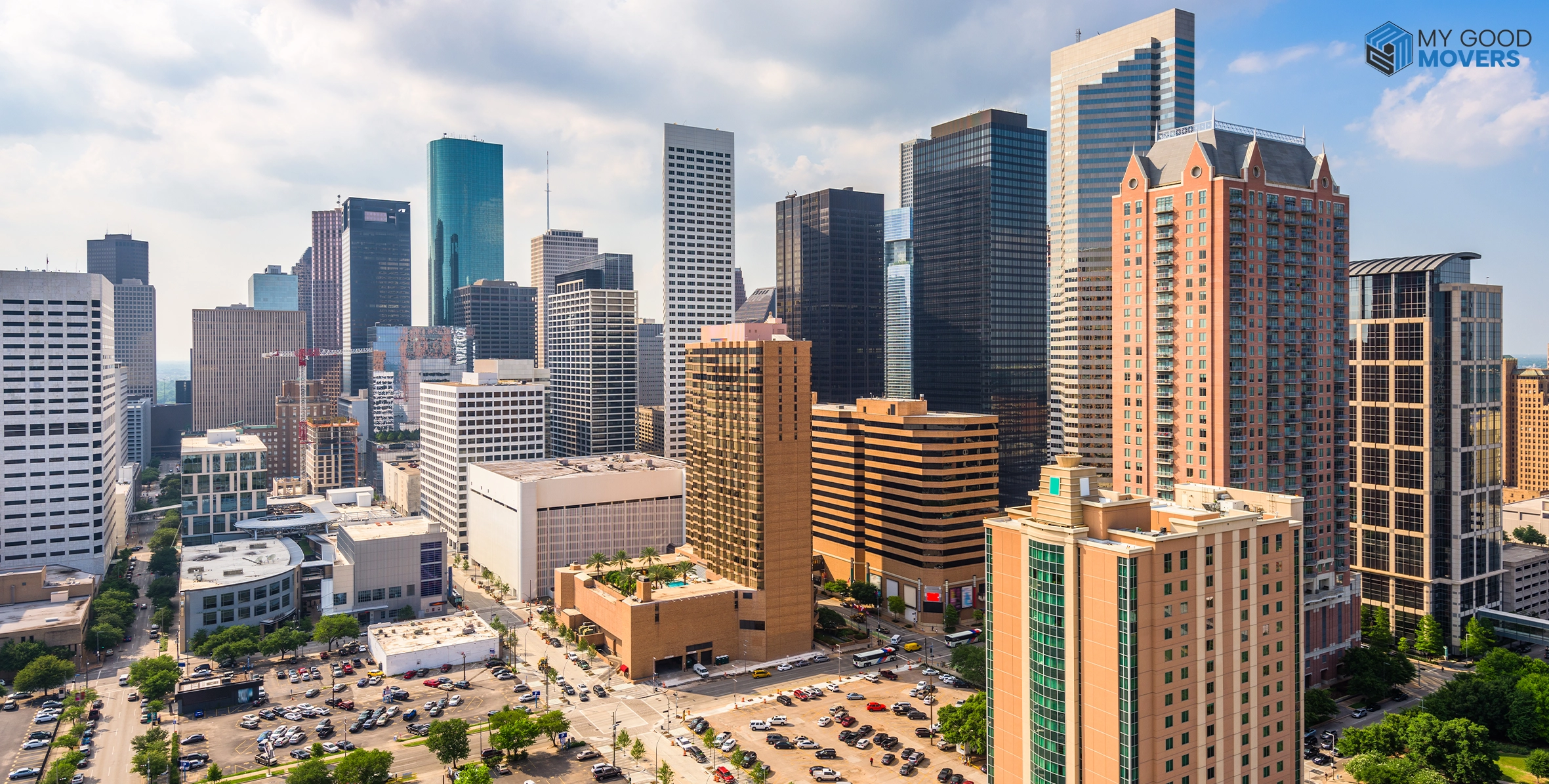



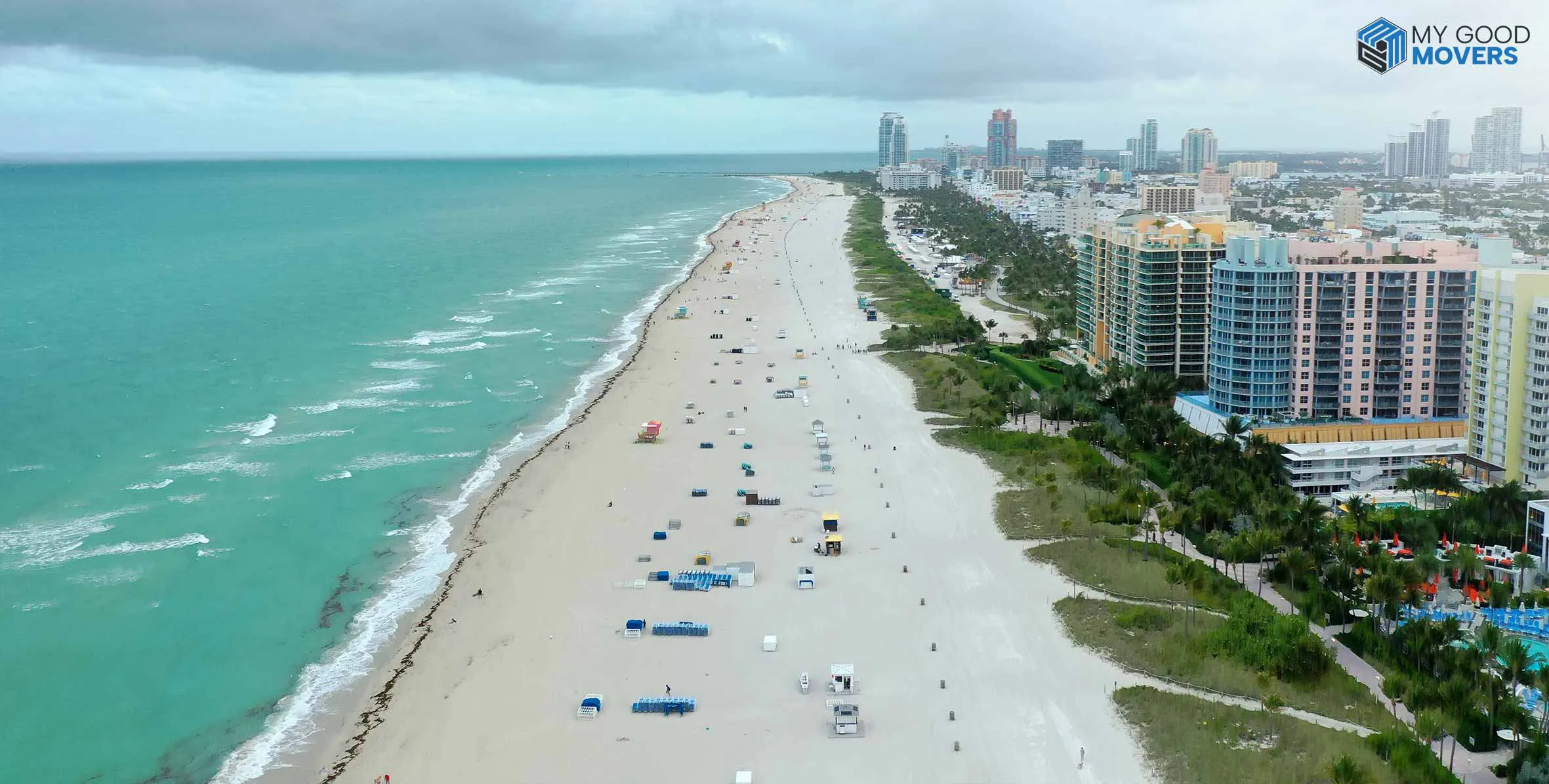


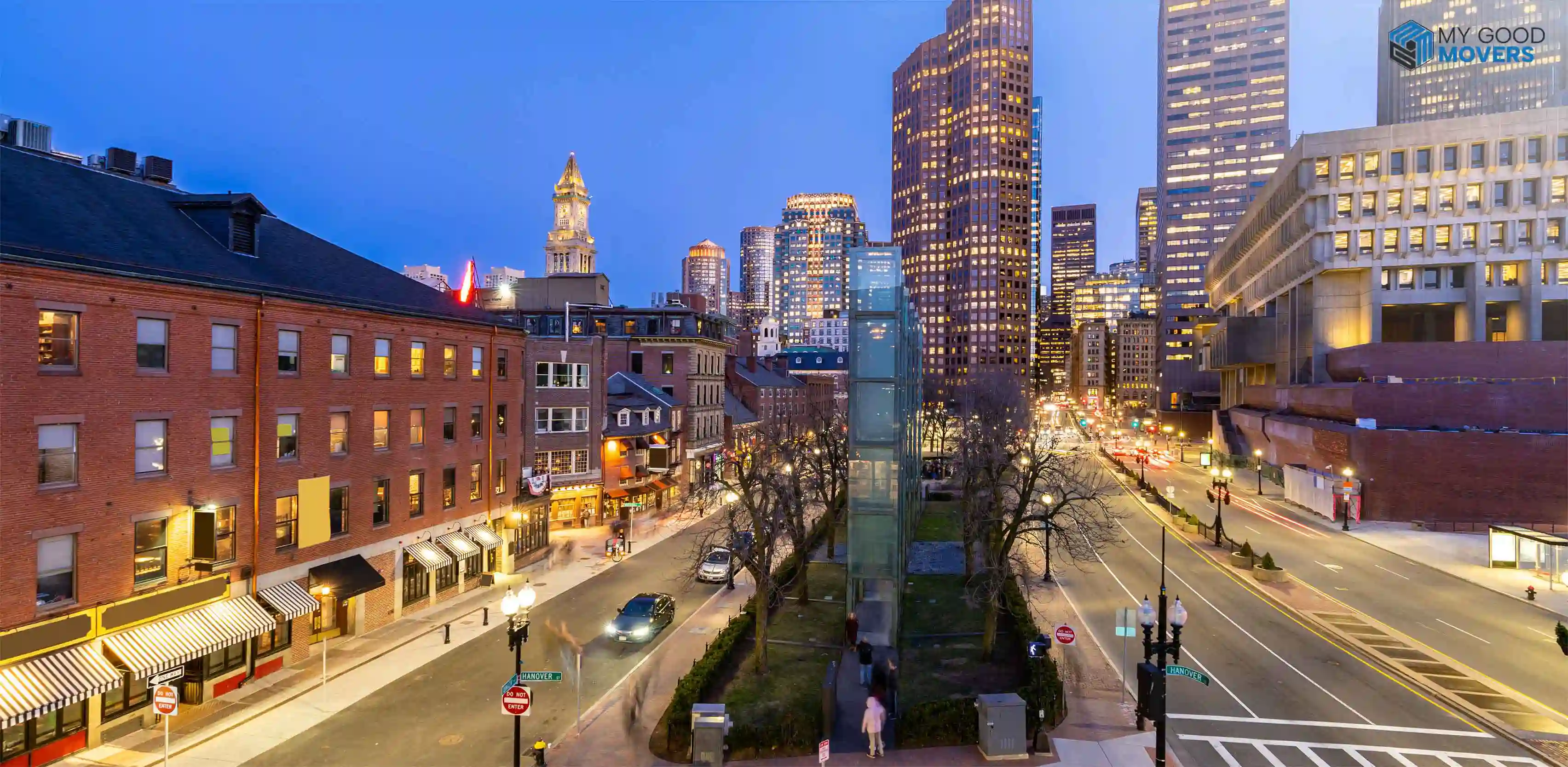







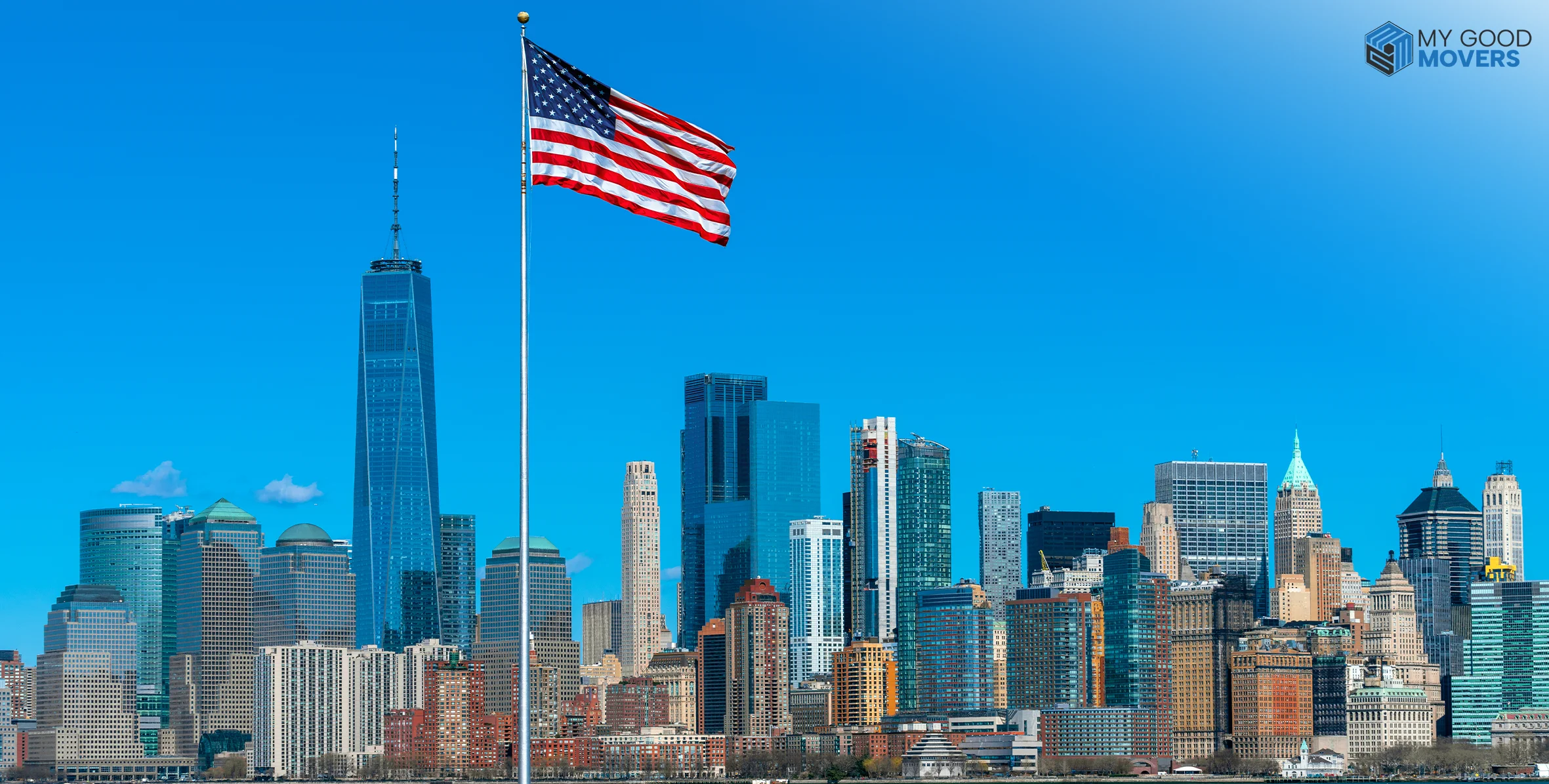





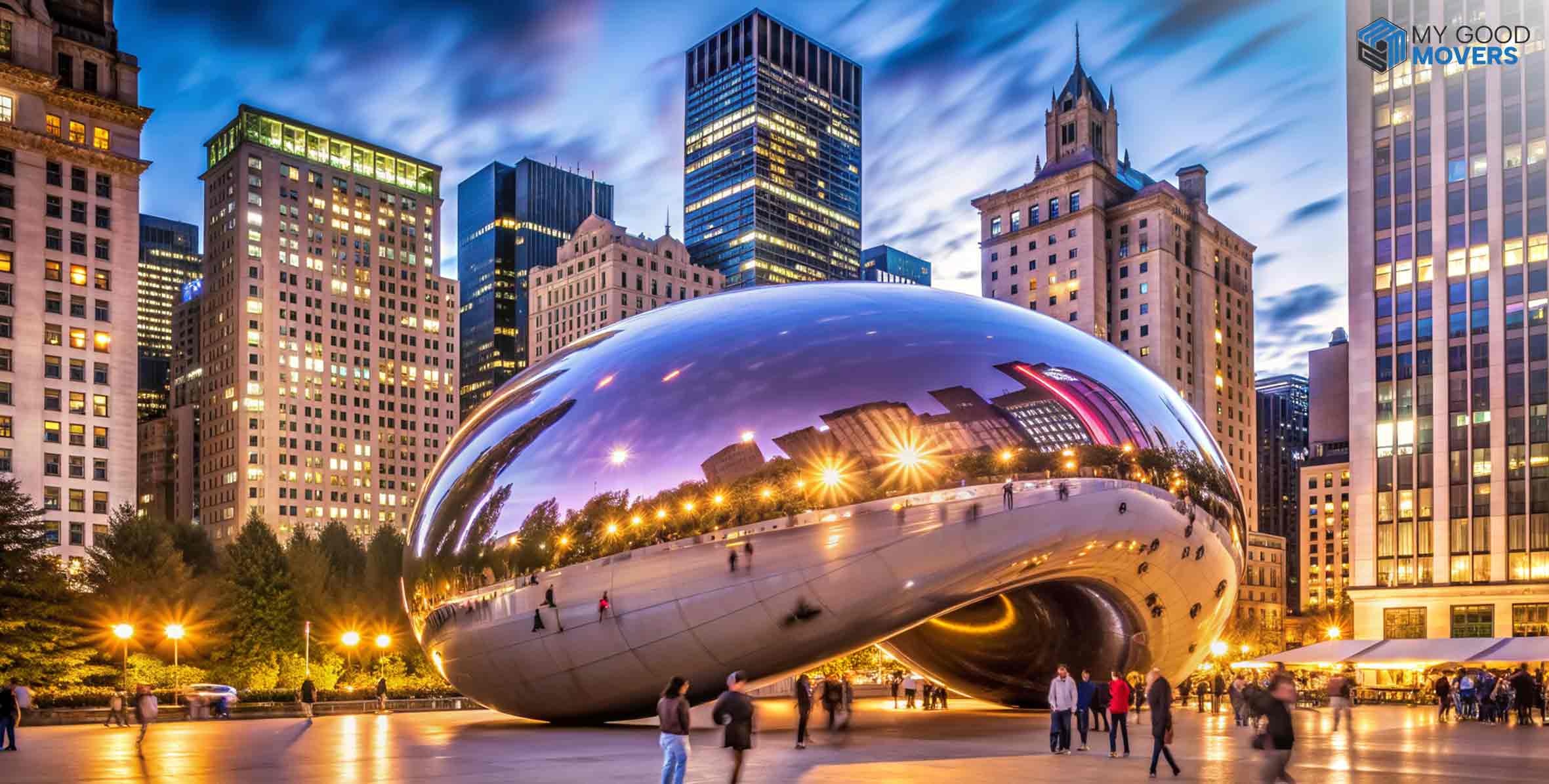
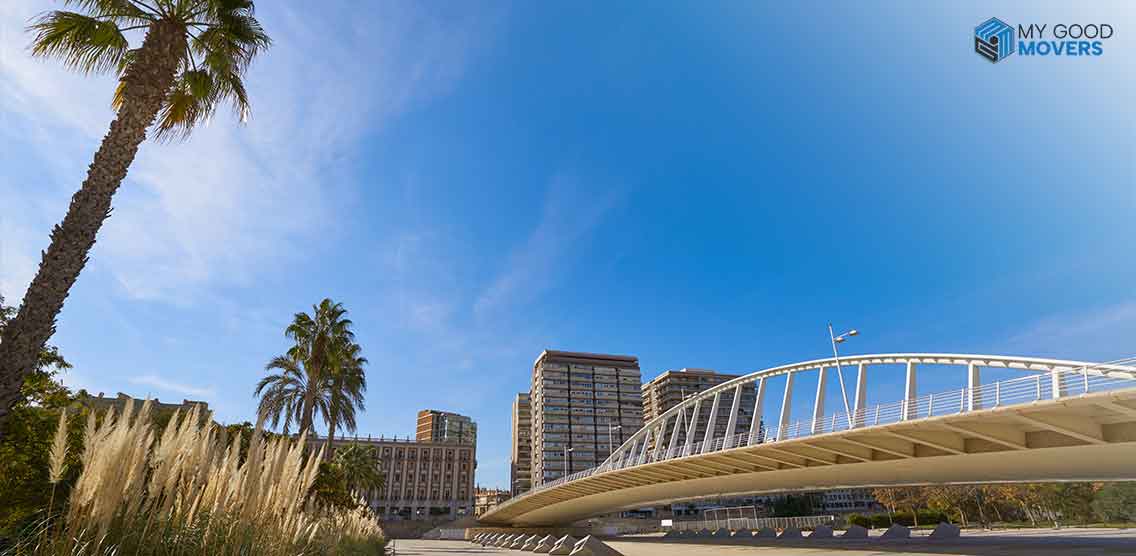





 (239) 799–6077
(239) 799–6077